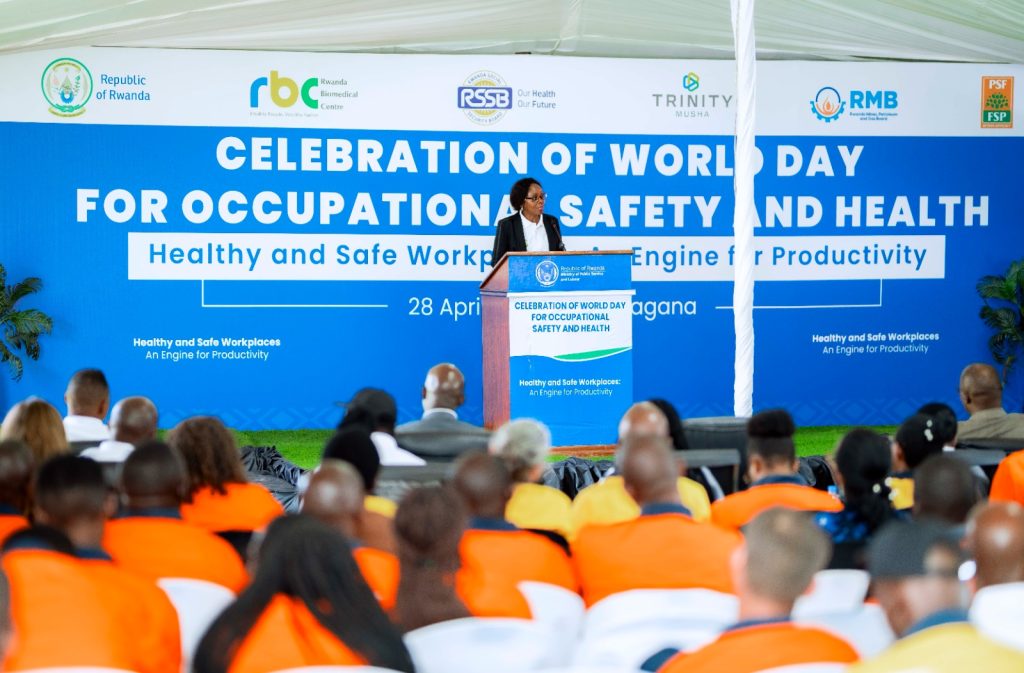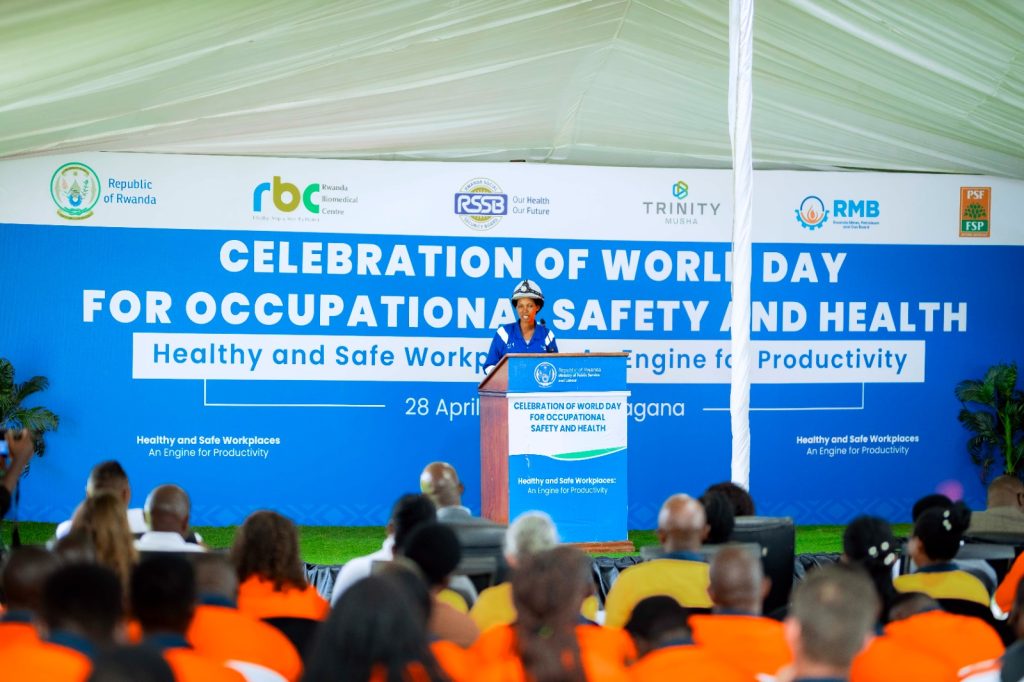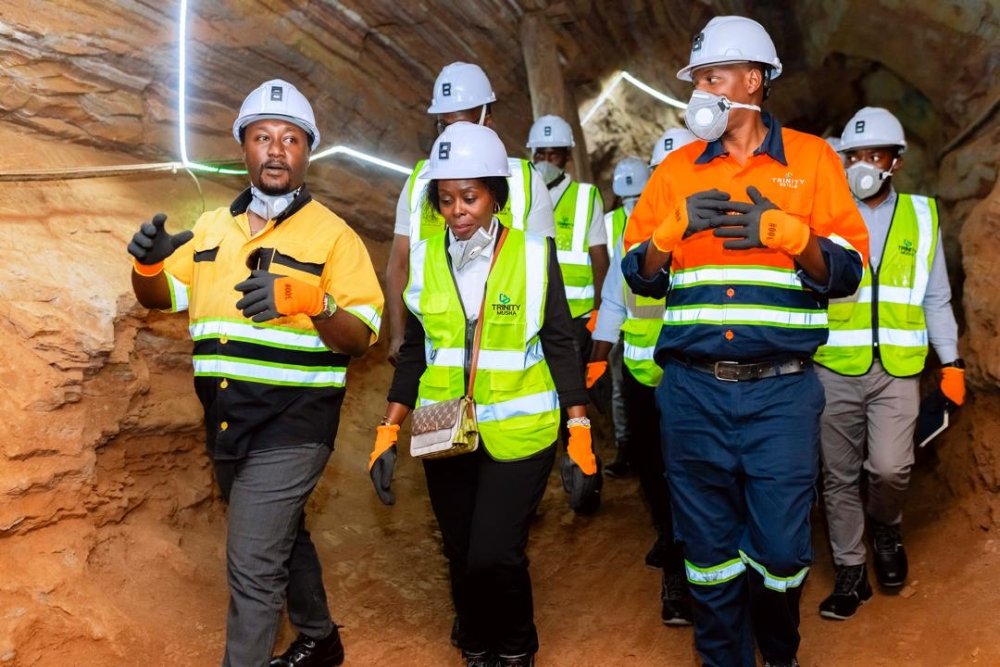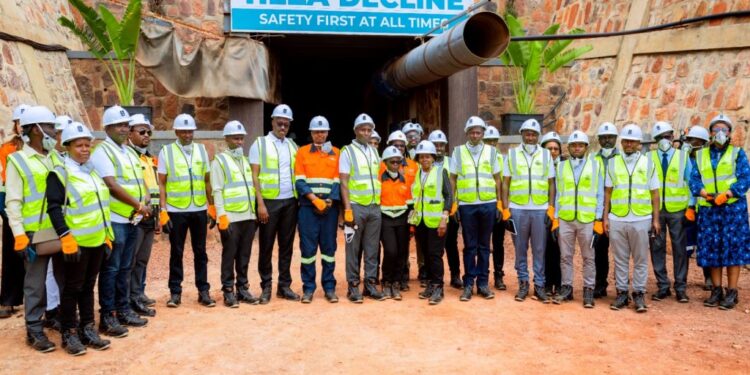More than 7,900 Rwandan workers suffered job-related injuries or illnesses during the 2023-24 fiscal year, Rwanda’s labor minister said Monday, as the country marked World Day for Safety and Health at Work.
Minister of Public Service and Labor Christine Nkulikiyinka made the announcement during a national event held at a mining site in Musha Sector, Rwamagana District. The celebration, which included free health screenings and site inspections, highlighted ongoing efforts to improve occupational health and safety, particularly in the mining industry.

“These numbers reveal the high cost of neglecting workplace safety,” Nkulikiyinka said. “When nearly 8,000 workers miss work due to job-related risks, it’s not just a personal loss — it affects the national economy and burdens our social protection systems.”
Data from the Rwanda Social Security Board (RSSB) recorded 7,955 cases of work-related accidents or illnesses in the past year. Nkulikiyinka said those figures only reflect workers covered by insurance and do not include informal or unregistered laborers.
“We must consider the additional burden carried by workers who have no access to insurance or support when workplace accidents occur,” she said.
The International Labour Organization (ILO) estimates that globally, more than 395 million people are affected by occupational injuries and diseases annually.
Francis Kamanzi, director general of the Rwanda Mines, Petroleum and Gas Board, said working conditions in the mining sector have improved over time, with more workers now receiving formal contracts and banking their wages.
“Seven years ago, only 5% of miners had contracts. Today, 34% are formally employed,” Kamanzi said. “The number of miners has grown from 30,000 to 81,000.”
At the Musha site, workers receive safety gear, including helmets, boots, flashlights, earplugs and masks. Site managers said workers also benefit from insurance and routine safety assessments before going underground.
“Before anyone enters the tunnels, we evaluate the conditions to ensure safety,” said Ntirenganya Bahati Jean Claude, the site’s occupational health and safety officer. “This helps us reduce fatalities and injuries.”
Some workers said the safety equipment has changed their daily experience.
“When I wear this gear, I feel protected,” said Shema Hypolite, a miner at the Musha site. “It allows me to go home safe and healthy.”
Jeanette Uwimana, who has worked at the mine for five years, said the job has allowed her to support herself, buy a cow, save money and purchase a smartphone.

“Before mining, I didn’t see a future,” she said.
A report by the national labor inspectorate shows that Rwanda’s overall compliance with decent work standards rose from 67.5% in 2021-22 to 72.7% in 2023-24. However, compliance with health and safety standards remains lower, increasing from 45.5% to 59.9% over the same period.
Nkulikiyinka said the government is encouraging employers to invest in both accident prevention and social protection for workers.

“Work, when protected and respected, is a driver of development,” she said. “It is how we will continue to lift Rwandans out of poverty.”
According to the National Institute of Statistics of Rwanda, the poverty rate fell from 39.8% in 2017 to 27.4% in 2024.











